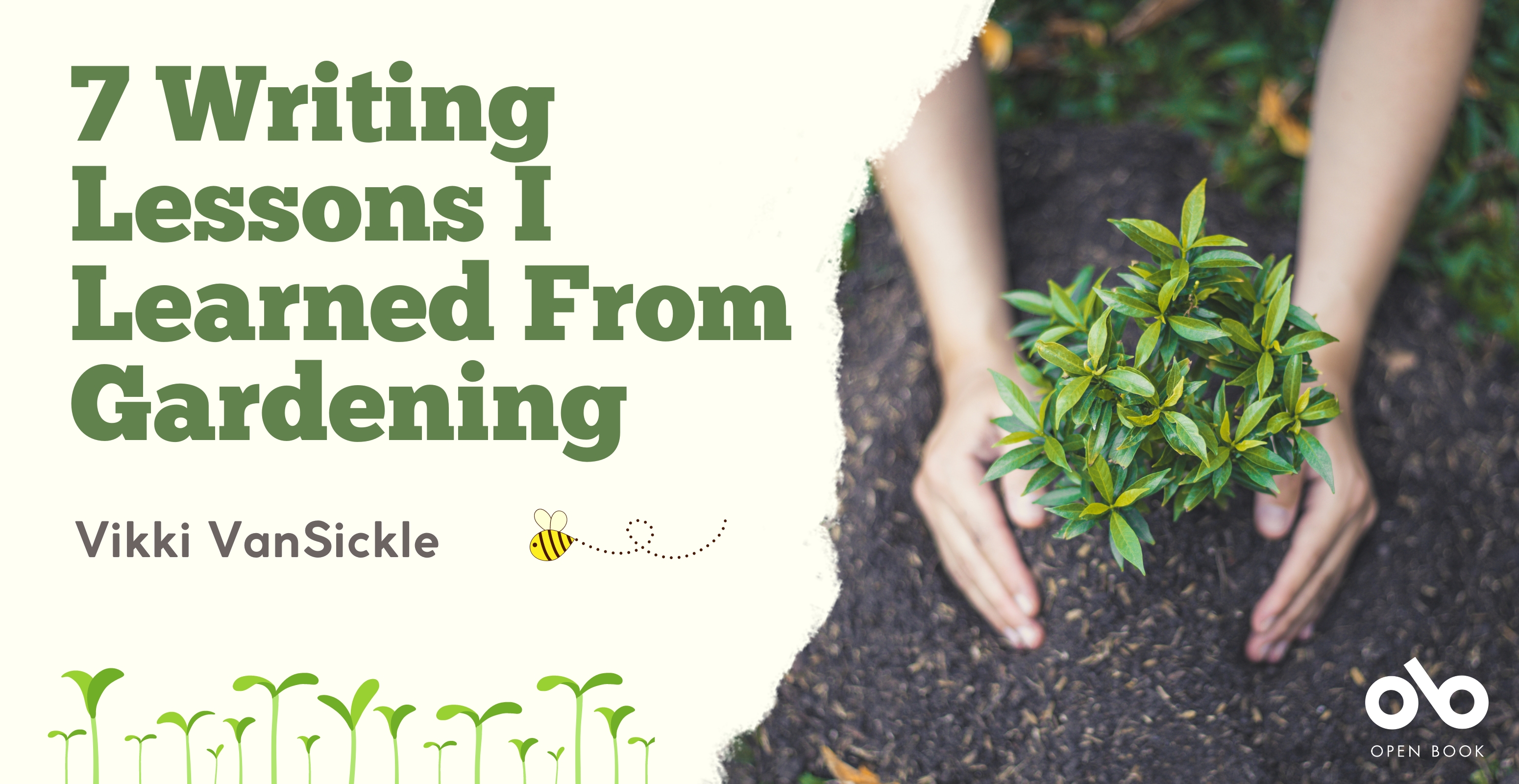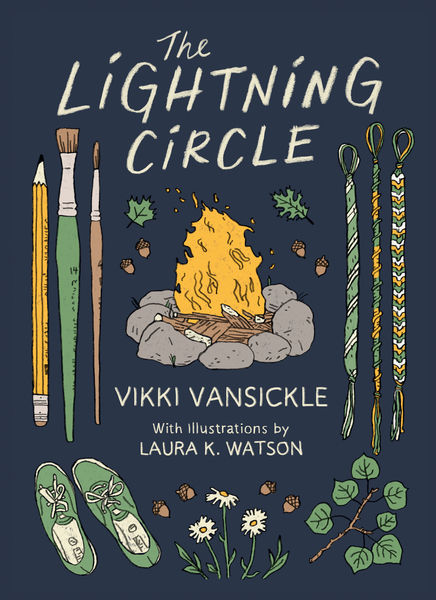7 Writing Lessons I Learned from Gardening
By Vikki VanSickle
I am by no means a capital G Gardener, but planning and tending to my little patio garden brings me a lot of comfort and satisfaction. While getting my garden ready for winter, I found my mind wandering and making the connection between tending plants and stories. Here are 7 lessons I learned from gardening that apply to writing.
The Myth of Green Thumbs
I love plants but gardening doesn’t come easily to me. I’ve probably killed more plants than I’ve successfully grown, but this doesn’t stop me from clicking on every listicle that promises easy, practical gardening tips, buying succulents every few months and planning out my garden every spring. Gardening, like writing, is a craft—one that requires practise. Natural ability will only take you so far. You will need discipline, the ability to take criticism, and some degree of market savvy to succeed.
You need fallow seasons
Last week I put my garden to bed—cut back the perennials, pulled up the spent annuals, raked the leaves and mulch into the soil and covered sensitive plants for the winter. The earth needs rest and so do you. Constant productivity leads to thin, malnourished stories or creative burn out. Hustle culture and late-stage capitalism has tricked us into believing that we should be working at full tilt, all of the time. If your plants could talk, they would laugh at you. Give yourself the grace to take breaks and refill the well.
Deadheading
One of my favourite morning rituals is checking my plants for new growth and pinching off the browned and dead flowers. It’s satisfying to feel them disintegrate into dust between my fingers. Deadheading is akin to the concept of ‘killing your darlings,’ a phrase I don’t like and don’t always agree with. I prefer to look at the editorial process like deadheading—what ideas are old and can be retired? What serves the characters and ultimately the story? By clearing away old ideas, you’re making way for something new.
There will always be squirrels
Or aphids, or raccoons or any number of pests waiting to destroy all your hard work in a single night. It’s nearly impossible to squirrel proof your garden (believe me, I’ve tried), so I have learned that some interference is inevitable. Your squirrel could take one of many forms—rejections, bad reviews, distractions, computer crashes—the point is to expect them. Writers, like gardeners, have very little control.
Patience
It takes time for ideas to germinate, grow, and eventually, bloom. I meet so many writers who get frustrated and give up because the timeline didn’t work out the way they planned. Maybe you thought it would only take you a year to finish a draft, or the agent you queried says the response time is twice as long as you had hoped. Timing can also work in your favour. I first submitted my upcoming YA novel The Lightning Circle in 2008. It was rejected a number of times until a smart agent told me that it was too quiet and not what the market was looking for. So I put it aside, dusted it off a few times, then resubmitted in 2021. It’s now scheduled for March 2024 and is far more beautiful a book than it would have been back in 2008.
Your CanLit News
Subscribe to Open Book’s newsletter to get local book events, literary content, writing tips, and more in your inbox
Careful and consistent attention
This is almost too obvious to mention, but worth remembering that your project will get better the more attention you give it. Very few projects benefit from long stretches of inattention. It’s harder to get back into the world of the story or a writing flow if you’re leaving it for long stretches of time. Even the most hands-off plants need to be checked for pests, stripped of dead leaves, or watered now and again. Creating a consistent routine—fifteen minutes a day, Sunday mornings, 500 words a week—find what works for you and do it consistently.
Unwieldly plants grow best with a structure
Even the hardiest of climbing plants—scarlet runner beans—need to be staked and given something to cling to, otherwise they fall into a tangled mess. Likewise, sprawling, epic stories need to be pinned to something. Even the most prolific pantser needs to think about plot and structure at some point. Make a timeline, family tree, a series bible— whatever you do, don’t set out on an epic writerly adventure without a map or compass.
The views expressed by Open Book columnists are those held by the authors and do not necessarily reflect the views of Open Book.
Vikki VanSickle is the author of a number of acclaimed novels for children including P.S. Tell No One, Words That Start With B, Summer Days, Starry Nights, and the 2018 Red Maple award-winning The Winnowing. She has also written the picture books If I Had a Gryphon, Teddy Bear of the Year, and Anonymouse. Vikki started her career as an independent bookseller and spent 12 years working in children's publishing. A devoted member of the Canadian children's book world, she curates and presents regular book segments at CTV Your Morning and balances her writing with arts education for all ages.




